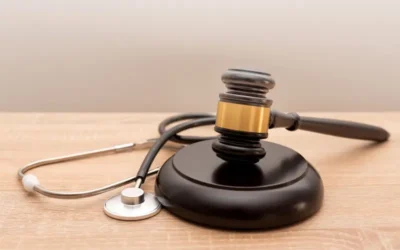As a beneficial program for employees, workers’ compensation focuses on granting the benefits to workers who really deserve financial support, utilizing processes such as medical record review. Given the importance of medical records in determining workers’ compensation eligibility, injured workers must disclose their entire medical history including prior injuries or illnesses to the workers’ compensation doctor. This will help the doctor determine the best treatment for the worker. The records would also show whether the injured employee has earlier injuries to the body part injured in the current work accident or any pre-existing conditions such as hypertension or diabetes. Prior injuries have to be investigated because the insurer or employer may not be liable for payment of medical treatment for an injury that occurred before the accident at issue and/or did not occur in the course and scope of the worker’s employment. Moreover, if the injured employee is hypertensive or a diabetic, these pre-existing conditions could slow down his/her recovery and even cause complications in healing.
If the worker provides inaccurate or incomplete medical history, it can have serious health consequences as well as negatively impact the worker’s compensation claim. Concerned that their claim may be denied, many workers do not reveal information about earlier injuries and illnesses. The absence of formal discovery in traumatic injury cases is a major drawback for employers in some US states. In the absence of depositions and standard interrogatories in traumatic claims, claims that involve long-standing pre-existing conditions often get passed through workers’ compensation. By the time such conditions are discovered during the final IME (Independent Medical Examination), payments may already have been made which are difficult to recover.
To avoid unnecessary payments and contain costs, insurance adjusters and treating physicians can gather information on some aspects when new claims are filed, according to a recent WorkersCompensation.com article.
- Find out the mechanism of injury. It is best to have the injured worker write down in his/her own words how the injury occurred and the actual location of the pain.
- Ask about past medical history. Find out whether the worker was involved in any past motor vehicle accidents, and if so, make enquiries about the accidents for which treatment was obtained. Also, ask the worker to mention the names of the treating physicians. This will make it easy for the adjuster or defense attorney to go about collecting the prior medical records. Focus should be given to motor vehicle accidents as well as slip and fall injuries, sports injuries and so on.
- Investigate prior chiropractic history because chiropractic treatment records will have a direct bearing on any claim involving the shoulder or spine. These records may have references to pre-existing injuries, earlier X-rays, and MRI scans.
- Collect all objective medical evidence such as prior X-rays, MRIs, CT scans, and EMGs.
- Get information regarding the employee’s prior as well as current hobbies and recreational activities.
- Ask about any second jobs and other employment involving physical activities the employee may be engaged in and may have contributed to the injury.
If the above-mentioned information is not available, employers could be at a loss to make an intelligent decision whether to accept or reject a claim. When the case is referred to medical professionals for treatment, the medical office should also take its own detailed past medical history and that information must be included in the medical reports sent to the third party administrator or carrier for medical chart reviews. When information regarding prior medical history is included in the medical reports, employers can avoid paying enormous amounts of money in terms of workers’ compensation.




